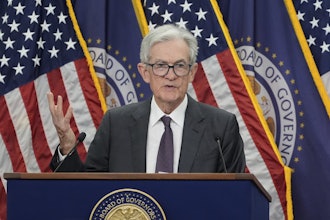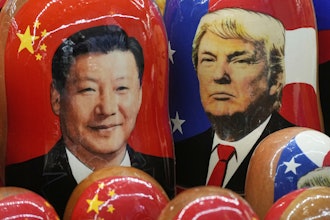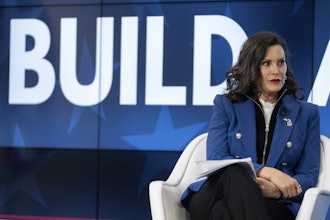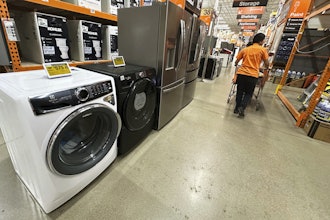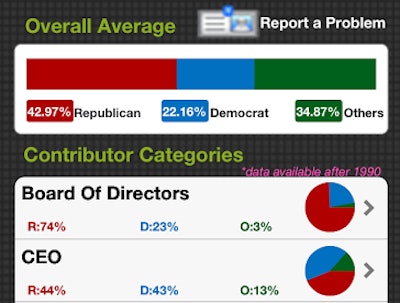
 In honor of the Mid-term election voting today, I want to look at corporate campaign financing and easy consumer access to this information through a new app called BuyPartisan.
In honor of the Mid-term election voting today, I want to look at corporate campaign financing and easy consumer access to this information through a new app called BuyPartisan.
Campaign finance reform has been a hot topic lately. This September, Senate Democrats led by Senator Tom Udall attempted to institute a constitutional amendment limiting the money donated by outside groups in election campaigns. Perceived by many Republicans as a violation of the First Amendment right to free speech, the push was doomed from the start. The National Association of Manufacturers (NAM) spoke out against the attempt in September and wrote a letter in support of the Senate’s rejection of S.J. Res. 19.
In the letter, NAM Vice President of Infrastructure, Legal, and Regulatory Policy Rosario Palmieri said, “In rejecting an attempt to limit political speech, the Senate claimed a victory for democracy. Participation in the political process is among our most fundamental rights—attempts to restrict citizens’ and groups’ freedom to express their political beliefs must be guarded against. Manufacturers are more engaged than ever because they know that policies from Washington have a clear effect on their ability to grow and compete. The NAM will continue to stand up and protect their voice.”
The NAM and many others insist that unlimited campaign financing is democratic. However, there is another side to the story. The unlimited spending could mean that groups with lots of money to give would have more influence in elections. A film by Academy-Award nominated filmmakers Carl Deal and Tia Lessin called Citizen Koch examines the Koch brothers behind the Tea-party affiliated group “Americans for Prosperity” and asks the question, “With the U.S. Supreme Court’s Citizens United ruling opening the floodgates for unlimited political spending, it’s now easier than ever to buy an election. But what happens when the voters realize that the billionaires and corporations doing the buying do not have the people’s best interests at heart?”
The landscape of campaign financing has changed dramatically since the 2010 Supreme Court Citizens United v. Federal Election Commission ruling, which effectively revoked corporate and union bans on independent expenditures, giving groups the ability to spend an unlimited amount. This decision does not mean that groups can donate money directly to candidates, but it allowed for the birth of “super PACs,” which can then spend the billions in funds from corporations and unions to buy advertising for or against a certain candidate or issue.
How does the average American consumer fit into this picture? While many individuals may not give directly to independent political groups, the corporations those individuals support may be giving huge sums. When you buy a product, you contribute funds to the corporation that manufactured the product. So where exactly is your consumer contribution ending up? Much of the information on spending by private corporations is available, and at opensecrets.org, you can view the top contributors for a diverse array of industries.
What if the information was available at your fingertips and every consumer could access every product’s political association right there in the grocery store?
An app called BuyPartisan, developed by former Capitol Hill and campaign staffer Matthew Colbert, turns the numbers around and makes this possible. Rebecca Bratek of The Los Angeles Times says, “By compiling campaign finance data from the top Fortune 500 companies and matching it with their products, the app lets consumers scan their groceries and immediately find out which political party stands to profit most from the sale.” Instead of searching for top contributors by industry, BuyPartisan allows you to can a product’s barcode and immediately view how the corporation behind your product is spending. The real question is whether or not this information will actually affect consumer habits.
Is BuyPartisan a good idea—does it encourage harmful blind party allegiance, or does it empower consumers to exercise their political influence and essentially make every day Nov. 4th? What should be the relationship between major corporations and politics, and what do you think of unlimited corporate spending? Comment below.













